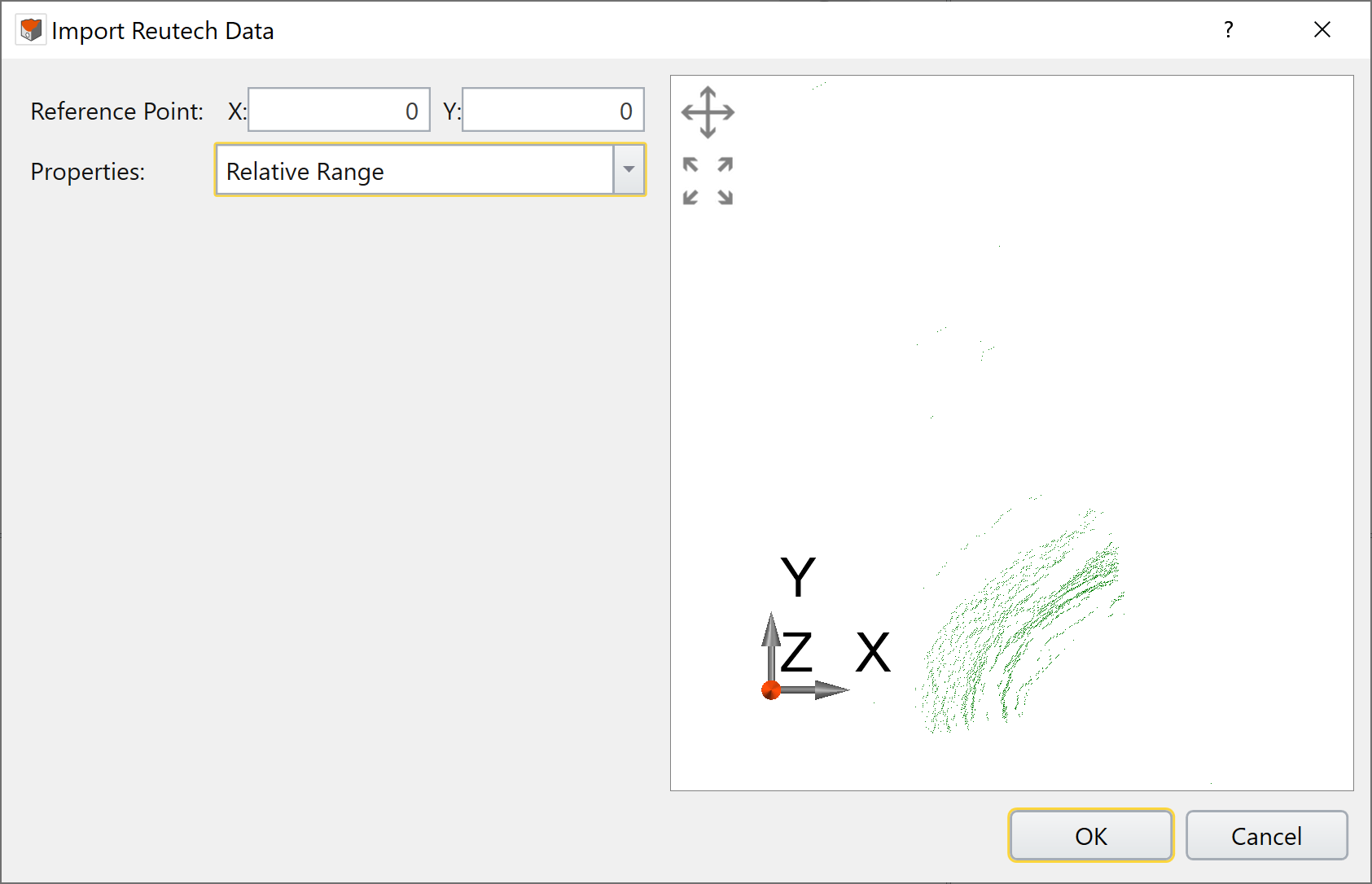Import Reutech Data
This feature provides a data importer to let users importing the measurement live radar data, for ground movement, provided by Reutech. The import procedure includes File Loading, Data Type/Property Selection, and Data Filtering and Geometry Preview.
- Go to File > Import > Import Sensor Data > Import Reutech Data.
- An Open File dialog will pop up. This dialog only accepts .csv files. After selecting the .csv file you wish to import, click OK.
- The Import Reutech Data dialog will show users the available data types/properties and a view of the imported coordinates in a point cloud.
- Reference Point: Locates in the first line on the window’s left side. It displays the current reference point in X and Y. The reference point is the first point in the file by default, and it is already converted to its local coordinate if the points saved as longitude/latitude in the file. The default value of reference point is (0.0, 0.0). The values displayed are accurate to four decimal places by default. The users can enter values to set the reference point according to their needs.
- Properties: Located below Reference Point. It contains all the available properties to import form the file. The selectable properties include Relative Range, Average Velocity, and Velocity Delta.
- Click OK to move to the next stage.
- The Edit Point Cloud dialog will pop up. The user can now see a preview in the viewport on the right hand side of the dialog. You can use the viewport to rotate the model to confirm that the geometry matches the project location.

On the right side of the dialog, there is a viewport that displays the coordinates in a point cloud. The viewport allows users adjusting the view by clicking on the Pan button and moving the mouse with the left button pressed, or zooming in and out by scrolling the mouse wheel. Users can go back to the default view by clicking the Zoom Fit button. It also enables users to select the reference point on the point cloud in the view by clicking the mouse’s left button.
Data Type/Property selection section is on the left side of the dialog.
The Filter Values section allows the user to customize the range of values they want displayed in the radar map. Moving the cursor will update the viewport with the data that falls within the customized range.
Click OK to create the map.
Below shows an example of Reutech imported average velocity data. The red and yellow regions show the locations of lowest average velocity.
